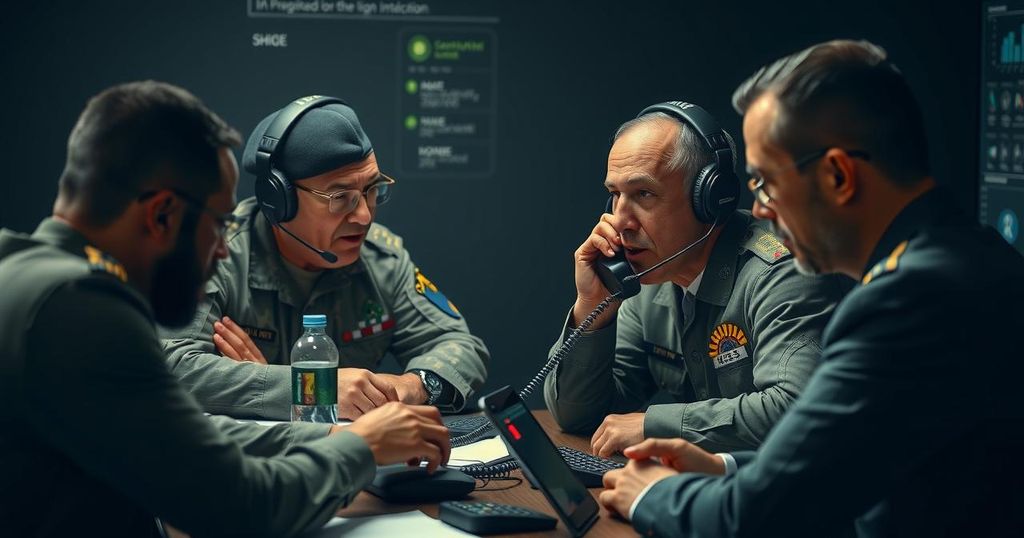Improved Communication Between Uganda and Rwanda Armies Enhances Border Security

The armies of Uganda and Rwanda are rapidly addressing cross-border security issues through immediate communication, significantly improving cooperation between the two nations. Recent efforts include meetings that focus on strengthening coordination and deterring negative activities impacting border communities, following a period of strained relations due to accusations of espionage.
The armed forces of Uganda and Rwanda have adopted a more efficient method of addressing cross-border security concerns through immediate communication channels, including phone calls and direct meetings between field commanders. This strategic approach was discussed during the recent Proximity Commanders Meeting held in Musanze, Northern Rwanda. Major General Vincent Nyakarundi, the Rwanda Defence Forces (RDF) Army Chief of Staff, noted that this streamlined process allows for prompt resolution of border issues, avoiding the previous lengthy bureaucratic procedures that involved diplomatic channels in Kampala and Kigali.
Lieutenant General Kayanja Muhanga, the Commander of Uganda People’s Defence Forces (UPDF) Land Forces, commended the significant improvements in cooperation and coordination between Ugandan and Rwandan forces that have stemmed from these engagements. He stated that such interactions facilitate swift problem-solving, enhancing bilateral relations.
The shift towards direct communication comes in the wake of previously strained relations characterized by accusations of espionage and economic sabotage between the two nations. However, the visit of General Muhoozi Kainerugaba, Chief of Defence Forces of Uganda, to Rwanda, and his collaboration with President Paul Kagame were pivotal in mending and strengthening ties. The recent meeting also focused on implementing strategies to protect border communities against negative activities, such as smuggling and human trafficking. Furthermore, the participants engaged in visits to key historical sites, including the Kigali Genocide Memorial, shedding light on the events of the 1994 Genocide against the Tutsi, which left over a million lives lost.
The strong ties between Uganda and Rwanda have been historically significant, yet they have faced turmoil due to allegations of espionage and economic sabotage. This ongoing rivalry has necessitated proactive measures to improve relations, particularly at the military level. The recent dialogue between the commanders is seen as a crucial step in restoring trust and ensuring border security. The 1994 Genocide in Rwanda serves as a sobering reminder of the region’s history and the importance of regional cooperation.
In conclusion, the proactive approach of direct communication between the Ugandan and Rwandan armed forces marks a pivotal development for both nations. The ability to resolve cross-border issues rapidly mitigates risks and enhances security for border communities, fostering better bilateral relations. These strides reflect a commitment to cooperation and stability, vital for addressing shared challenges in the region.
Original Source: chimpreports.com








